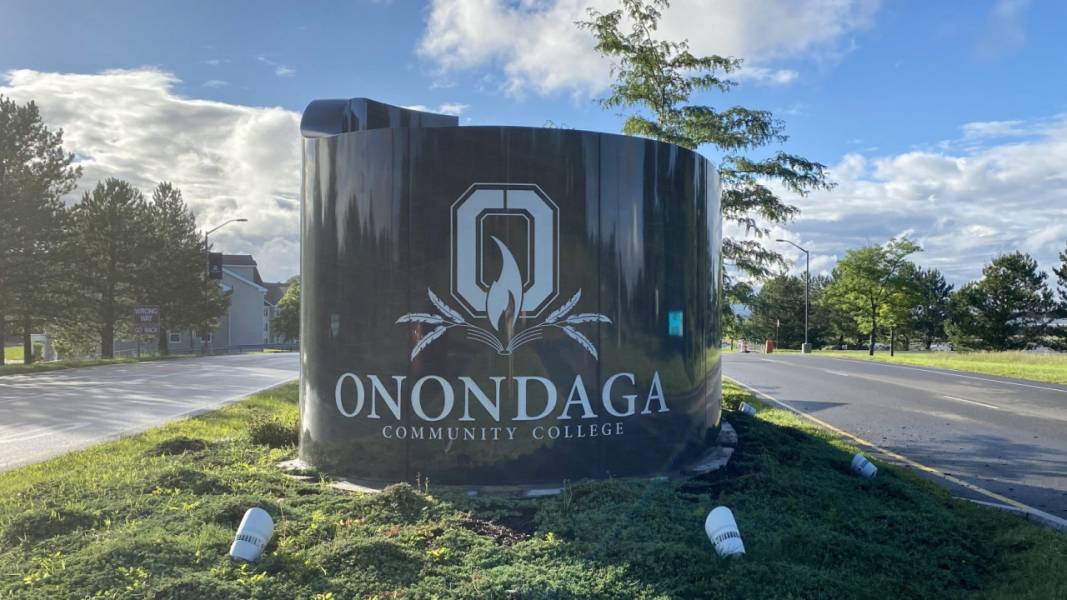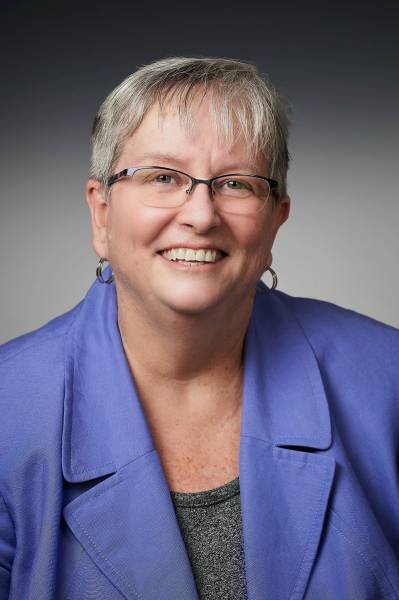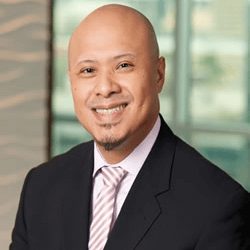Dr. Casey Crabill is Onondaga Community College’s eighth President, leading Central New York’s second largest undergraduate college and the latest guest in this Higher ED Thought Leadership Series.

Prior to joining OCC, Dr. Crabill served from 2006 to 2013 as president of Raritan Valley Community College in New Jersey, where her accomplishments included setting record student enrollment; obtaining a $4.6 million federal grant from the U.S. Department of Labor to train workers in new career paths; earning national awards for its Service Learning Program; becoming the first community college in the country to sign an environmental stewardship agreement with the U.S. Environmental Protection Agency; being selected as of one of 30 community colleges nationwide for the Achieving the Dream 2011 Cohort; and adding several new academic degree and certificate programs.
She has also served as president of the College of the Redwoods in Eureka, California from 1999 to 2006; as acting president and dean of Learning and Student Development at Quinebaug Valley Community College in Danielson, Connecticut; and division chair for Academic Development and Learning Support at Dundalk Community College in Dundalk, Maryland.
Dr. Crabill received her B.A. in English from Skidmore College and an M.S. in Teaching English as a Second Language and an Ed.D. in Curriculum and Instruction, both from the State University of New York at Albany.
Emad Rahim (ER): Please tell us how you got started in your leadership career in higher education?

Dr. Casey Crabill (CC): I started in higher education as faculty and took a fairly standard route through administration. I tried to take advantage of any opportunity to take on a project that I could learn through. The opportunity to serve as an Acting President 25 years ago at an institution where I was a Vice President gave me a wonderful opportunity to develop additional skills and prompted me to seek a president’s position.
ER: How would you describe your leadership style and management principles for success?
CC: I try to hire good people who have passion and then support them in their work. I take a team approach and expect the leadership team to work closely together. We work to build plans that address the needs of the institution. Finally, we work to be responsible stewards of the resources provided for the education of our students.
ER: Please tell us a little about your SUNY Onondaga Community College (OCC), its mission, and student population?
CC: Onondaga Community College is one of 30 comprehensive community colleges in the State University of New York (SUNY) system. We are an open access institution, meaning that anyone with a high school diploma or equivalent is admitted. We prepare students for careers and for transfer. Our students largely come from Central New York; however, we do have students from outside the region, from other states, and from other countries. As Central New York’s partner for education and success, we want to ensure that students have the support and the services they need to achieve their goals.
More Higher Ed Thought Leadership Series Interviews
Emad Rahim Interviews Merodie A. Hancock, PhD President, Thomas Edison State University
ER: Many students attend community college in preparation for pursuing a bachelor’s degree after graduation or earning a special career license. What type of programs and partnerships does SUNY OCC have to help these students reach their academic and career goals?
CC: All of our programs and services are designed to ensure that students are able to express, clarify, and meet their academic and career goals, starting with the very first interaction. We provide advising and career services to support students sharpening their goals. We provide tutoring, counseling, coaching, and mentoring to help students move through their academic programs. We have on-campus childcare, accessible technology, and quiet study facilities so that students can focus on their work. Many of our programs have internships built in to help students develop skills and gain experience. We have transfer agreements with many, many senior institutions to ensure that those who want to pursue a bachelor’s degree have the right information to move forward. In addition, we have a wide range of opportunities for students to grow through clubs and organizations, student government, and athletics, providing a robust student experience.
ER: As President of SUNY OCC, what institutional initiatives are you most proud of and why?
CC: OCC works constantly to develop and refine programs to ensure they are in synch with the needs of employers as well as with the expectations of transfer institutions. We have a myriad of support services designed to meet students’ academic and personal needs. We have an exceptional faculty, first-rate facilities, championship athletic teams, and a beautiful contemporary campus. The thing, however, that makes me the most proud is the living commitment of faculty and staff to the success of our students. Our faculty and staff are driven by our mission, ensuring that students have a solid, supported pathway to reaching their academic and career goals.
ER: How is the college addressing campus safety and academic accessibility during the global pandemic?
CC: Like most institutions, COVID-19 required OCC to revamp its programs and facilities to meet safety standards. We expanded remote options, implemented a rigorous testing protocol, and worked closely with Onondaga County Health department professionals and colleagues from Upstate Medical University. Their guidance and support allowed us to operate safely. Now we are working to ensure that our students, faculty, and staff have all the information they need about vaccines. Working with Wegman’s we have been able to offer vaccine clinics right on campus.
ER: With more colleges and universities going online or offering hybrid options, what is SUNY OCC doing to set your programs apart?
CC: OCC always had online offerings. In the 2020-21 academic year, we implemented additional remote modalities which offered students the opportunity to participate live in classes and communicate with their professors and classmates. We also sustained some in-person instruction for students and/or programs which required a face-to-face option. Our faculty are what set our programs apart – working to implement these new modalities quickly and effectively. In addition, our student services team ensured that supports were available both in-person and remotely.
ER: With COVID-19 affecting how campuses are operating around the world, what ways can curriculum innovation and technology help to keep college students and faculty safe?
CC: Colleges found ways to operate during the height of the pandemic. At OCC our faculty and staff led the way, incorporating new technology into their practice, and providing new opportunities for students to connect with them and with their peers. Perhaps the most important work we are doing now to support future safety is providing information on and access to the vaccines that can help us reduce the threat from the COVID-19 virus.
ER: In your opinion, what role does higher education play in responding to a global pandemic like COVID-19 and support social justice causes like Black Lives Matter?
CC: For a close look at the role of higher education in responding to a pandemic, we have a local shining example in Upstate Medical University which led on both science and public health, supporting research as well as helping institutions like OCC implement the results of that research to keep our campus as safe as possible. Our universities are critical to advancements in science to support human health.
In addition, higher education plays an important role in the development of citizenship, the ability to be part of a community. Students learn to reason, to question, and to participate in their communities as fully vested members whose voices help shape the community’s future.
ER: What is your advice to academic leaders that are responding to all these growing crises on their campuses for the first time?
CC: You will face challenges. They will likely be different each time. Whatever the challenge, make decisions that are based on what students need, lean into your mission with the passion that brought you to the work in the first place, and lean on your values and your integrity.
Read More:
most influential companies in the world
why are mobile devices critical to a digital forensics investigation?
what is the best reason for why someone would want to lease a house instead of buy one?

Dr. Emad Rahim is an award-winning entrepreneur, educator, author, community leader and TEDx Speaker. He currently serve as the Endowed Entrepreneur-in-Residence at Oklahoma State University and teaches at the Jack Welch Management Institute in the Executive MBA program. He was recognized by the United Nations Foundation as a 2013 Empact100 Honoree for his social entrepreneurship work, received a Congressional Award for his community service and was the recipient of the Forty Under 40 Business Leadership Award sponsored by Syracuse University. His personal story was turned into a short documentary, “Against the Odds,” and featured in the Huffington Post and Forbes. He co-authored “Leading Through Diversity: Transforming Managers Into Effective Leaders” and “The 4-Tions: Your Guide to Developing Successful Job Search Strategies” and is a frequent contributor to the Refractive Thinker book series, CEO Magazine, TweakYourBiz and YFS Entrepreneurship Magazine. Fellow him on Twitter @DrEmadRahim










